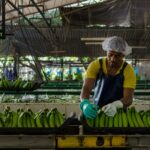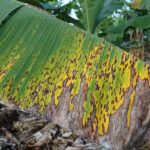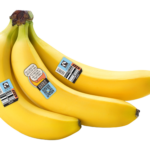Brazil could build cars with fruit extracts
Scientists from the University of the State of São Paulo (UNESP) have found nanofibers from bananas, pineapples and coconuts could replace many aluminum and steel components used in car production, reported Elpais.com. 
The results of the study were presented by Professor Alcides Lopes Leáo in a meeting sponspored by the American Chemical Society (ACS).
He said while the fibers may seem more fragile, after processing they can reinforce common plastics in a way that is 30% lighter than traditional materials and four times stronger, the story reported.
The study found processed fruit fibers are more resistant than kevlar - used in products ranging from bulletproof vests to sporting equipment - and could be applied to car dashboards, bumpers or side coatings, reported El Pais.
To make the resistant fibers the researchers put the fruit extracts into a machine similar to a pressure cooker, mixing them with chemicals and heating several times to make a powder, which was then added to plastics, the story reported.
The process is currently expensive, but Lopes Leão told El Pais many cars will likely go to the market with external components made from fruit extracts within two years.
Related stories: Banana peels could clean polluted water, research shows
Photo: Flickr, ECohen
Source: www.freshfruitportal.com












































